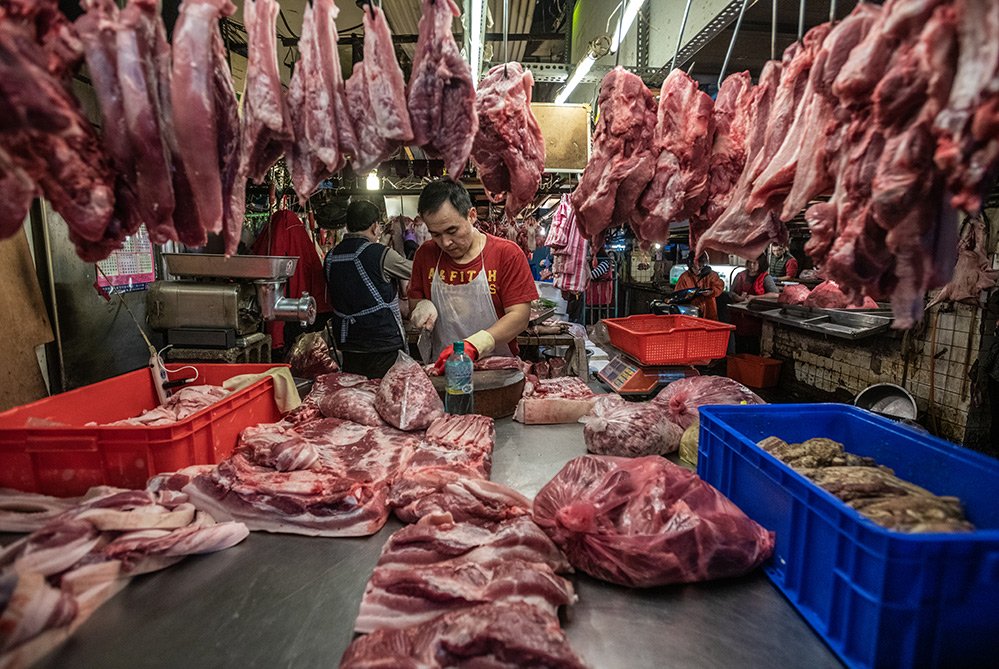Today marks the fiftieth anniversary of Earth Day, an international celebration of our planet. When the event was established in 1970, one would hardly have expected this milestone year to have been acknowledge by a planet in lockdown. Nevertheless, here we are, looking at our gardens through our windows, thanking Mother Earth, or whomever.
Coronavirus complicates, to an extent, the way in which we will be thinking about our planet today. Following lockdown, stories circulating about dolphins in Venice or goats in Llandudno seem to offer a silver lining to the crisis. Indeed, the crisis seems inextricable from the environment. Apparently having been transmitted from the consumption of an animal in a wet market, certain environmentalists have gone as far as to claim that Covid-19 comes as some retribution from the planet. A fascist stance by any interpretation.
Unfortunately, the Earth is not healing. If the attitude of eco-warriors supports the proliferation of life, Coronavirus is no different to fungus in a tree, or a poisoned waterway. A declining population is not a solution if reached by a plague. That the disease will disproportionately affect the poorest individuals and minority groups is, then, a testament against this theory.

In spite of this, Coronavirus may offer some much needed change. During April, Britain has seen its car usage return to levels not seen since 1955, airlines have collapsed due to a drop in demand and, just this week, oil prices in America slumped to $—35 a barrel. Perhaps this disease is offering a transition to a more sustainable way of living.
Or it may not. Just as one lands upon the positive changes brought about by Coronavirus, contradictions start to dawn. A disease that lives for days on surfaces, invisible, insidious, is not congruent with a reusable lifestyle. Disposable cups, plastic gloves, and face masks may be used en masse after the lockdown to prevent second peaks. Billions of people adopting single use products as necessity will not protect our oceans or wildlife.
In addition to this is the disruption of what was intended to be a significant year for environmental change. The COP26 Climate Change Conference in Glasgow, meetings of the Intergovernmental Panel on Climate Change in Ecuador, and the African Climate Week in Uganda, have all been cancelled due to fears about the Coronavirus. These were intended to discuss and implement real solutions to the climate crisis that will, now, be harder to execute.
Furthermore is the charitable status of environmental groups, such as Extinction Rebellion. As the economy slumps, these groups will find it harder to gather funding and continue their work.
It seems the planet is going to go one of two ways following the pandemic. Observing the Trumpian model, countries will become more isolationist, economy-driven, negating the planet for financial opportunity. Taking the Jacinda Arden model, they will become more interventionist, cooperative, and self-conscious. Looking at what has occurred in England, following an initial bout of panic in which individuals were seen to be unreasonable and selfish, the country has rallied around its more socialist institutions, such as the NHS, with individuals becoming conscious of their role within the community, providing for each other and volunteering to help. Hopefully, following the pandemic, a sluggish economy and various closed borders will prevent sudden booms in air travel and our encroachment into the natural world. Perhaps people will, too, equate the cruelty of wet markets with the cruelty of the abattoir, and shun meat. Our reintroduction to the value of community will, too, see more socialist policies gain public favour. This will all work to protect our world, and the people within it.
On your state-sanctioned walk today, take a moment to absorb a more prominent wildlife. If you have a garden, log what lives within. This morning, in my garden, I found Auricula, Mexican Fleabanes and Pansies jumping from the grass. In the sky were two kites, a buzzard, and a wagtail bouncing on the lawn. Acknowledging what lives around you, and what goes missing when human activity increases, is a surefire way to nurture the ecologist within, and protect the earth.


